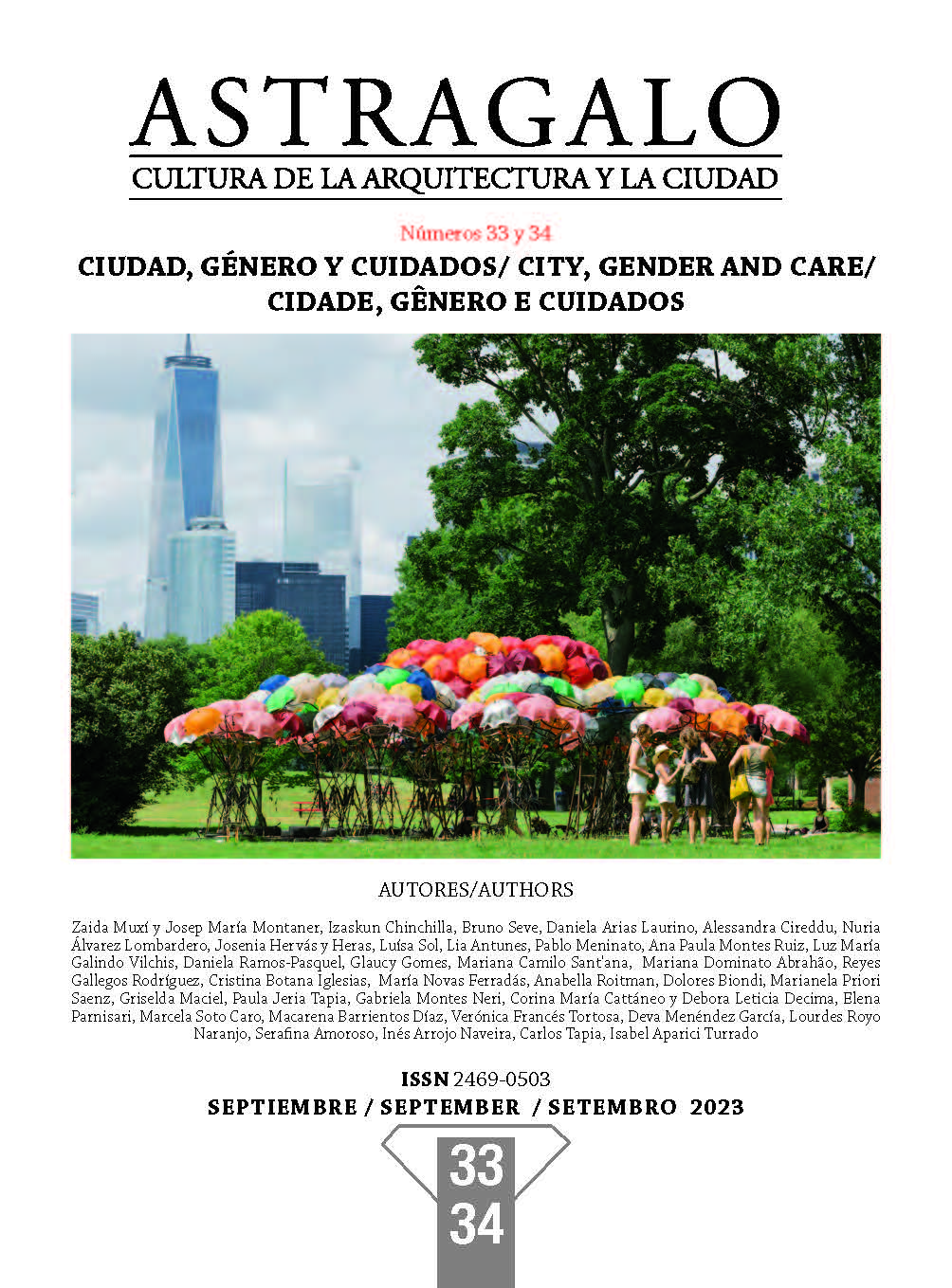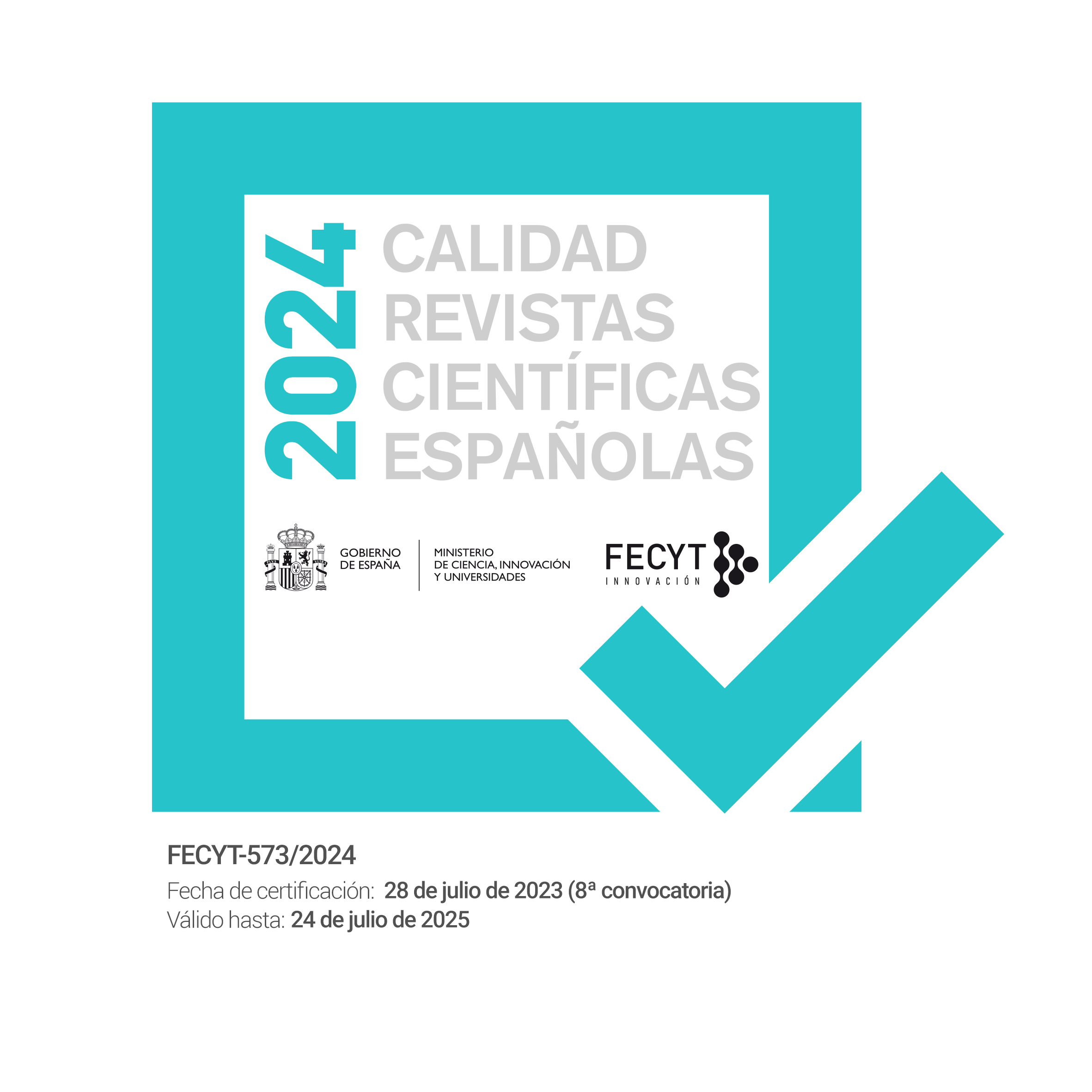Invisible Ecoproducers
Galician family farming spaces for local self-consumption
DOI:
https://doi.org/10.12795/astragalo.2023.i33-34.14Keywords:
ecofeminisms, self-consumption, family farming, Galicia, subsistence territoriesAbstract
In the first quarter of the 21st century, we are facing the profound impact of centuries of overexploitation of the Earth and the consolidation of a globalized capitalism with deep colonial and patriarchal roots. Two major challenges converge at this crucial point: the climate crisis and growing social inequality. The urban-centric approach in critical studies represents a significant obstacle to the construction of transformative counter-narratives. In urban and territorial studies, we tend to produce city-centered analyses that ignore the ecological footprint on the spaces - and bodies - that sustain them, often referred to as emptied territories. However, in Galicia, territorial practices persist which, despite having been historically devalued, have survived to the present day. These include family farming for local consumption. The spaces of Galician family farming allow us to imagine alternative ways of inhabiting the land that go beyond the rural-urban dichotomy. Many older Galician women continue to support this system of production and reproduction of the land, creating essential networks of cooperation and interdependence. This research article documents the workspaces of some of these ecological producers of farming descent who have played, and continue to play, a decisive role in the food sovereignty of numerous Galician families, respecting the environment, and caring for biodiversity.
Downloads
References
Betasamosake Simpson, Leanne y Klein, Naomi. 2017. “Danzar el mundo para traerlo a la vida: conversación con Leanne Simpson de Idle No More”. Tabula Rasa, (26), 51-70. https://doi.org/10.25058/20112742.188
Carreira Pérez, Xoan Carlos y Emilio Carral Vilariño. 2014. O pequeno é grande. A agricultura familiar como alternativa: o caso galego. Santiago de Compostela: Através.
FAO. 2021. “The share of agri-food systems in total greenhouse gas emissions. Global, regional and country trends 1990–2019”. Acceso mayo 29, 2023. https://www.fao.org/3/cb7514en/cb7514en.pdf.
FAO. 2020. “Uso de la tierra en la agricultura según las cifras”. Acceso mayo 29, 2023. Disponible en: https://www.fao.org/sustainability/news/detail/es/c/1279267/.
González-Peláez, Marta y Mellit, Carina (2022) Informe Mujeres Rurales. EAE BUsiness School
Grosfoguel, Ramón. 2022. De la sociología de la descolonización al nuevo antiimperialismo decolonial. Ciudad de México: Akal
Grosfoguel, Ramón. 2016. “Del «extractivismo económico» al «extractivismo epistémico» y «extractivismo ontológico»: una forma destructiva de conocer, ser y estar en el mundo”. Tabula Rasa, (24), 123-143. ISSN: 1794-2489. Disponible en: https://www.redalyc.org/articulo.oa?id=396/39646776006
Haraway, Donna. 2016. Staying with the Trouble: Making Kin in the Chthulucene. Durham: Duke University Press
Haraway, Donna. 2007. When species meet. University of Minnesota Press
Haraway, Donna. 1999. Ciencia, cyborgs y mujeres. La reinvención de la naturaleza. Madrid: Cátedra.
Herrero, Yayo (2011) Golpe de estado en la biosfera: los ecosistemas al servicio del capital. Investigaciones Feministas 2, 215-238. http://dx.doi.org/10.5209/rev_INFE.2011.v2.38612
hooks, bell; Brah, Avtar; Sandoval, Chela; Andalzúa, Gloria; Bhavnani, Khum-Khum; Coulson, Margaret; Talpade Mohanty, Chandra; Alexander, M.Jacqui y Levins Morales, Aurora (2004). Otras inapropiables. Feminismos desde las fronteras. Madrid: Traficantes de sueños
Kazic, Dusan. 2019. Plantes animées. De la production aux relations avec les plantes. Tesis Doctoral dirigida por Sophie Houdart, Sciences sociales, Université Paris-Saclay (ComUE). URL: http://www.theses.fr/2019SACLA027
Latour, Bruno. 2021. ¿Dónde estoy? Una guía para habitar el planeta. Barcelona: Taurus
Montes, C y Sala, O. (2007) La Evaluación de los Ecosistemas del Milenio. Las relaciones entre el funcionamiento de los Ecosistemas y el Bienestar Humano. Ecosistemas 16(3). Disponible en: https://www.revistaecosistemas.net/index.php/ecosistemas/article/view/120
Naredo, José Manuel (2022) “Las verdaderas causas del deterioro ecológico son las reglas de juego económico”https://lavanguardiadigital.com.ar/index.php/2023/07/08/las-verdaderas-causas-del-deterioro-ecologico-son-las-reglas-de-juego-economico/
Shiva, Vandana. 1998. Staying Alive: Women, Ecology and Survival in India. London.Zed Books
Shiva, Vandana. 2013. “Lo más revolucionario es un huerto”. El correo del Sol, October 10. https://elcorreodelsol.com/articulo/vandana-shiva-lo-mas-revolucionario-es-un-huerto.
Shiva, Vandana. 2018. "Este sistema ha destruido el 75% del planeta; si sigue nos dejará un planeta muerto". El Salto, January 27 https://www.elsaltodiario.com/soberania-alimentaria/vandana-shiva-sistema-destruido-planeta-ecofeminismo-soberania-alimentaria
Shiva, Vandana. 2023. "El ecofeminismo tiene que ser antifascista". El Salto, April 4 https://www.elsaltodiario.com/ecofeminismo/vandana-shiva-encuentro-internacional-ecofeminismo-antifascista
Soriano-Baeza, Juan; Otero-Enríquez, Raimundo y Calo, Estefanía (2018) Marcos temáticos y multifuncionalidades de los huertos comunitarios en el área urbana de A Coruña (Galicia): un estudio de caso. SÉMATA, Ciencias Sociais e Humanidades, vol. 30: Bioeconomía y Memoria Ecológica de los Territorios: Transdisciplinariedad para un Futuro Sostenible, 191-211. https://doi.org/10.15304/s.30.5250
Steel, Carolyn (2009) Hungry City. How Food Shapes Our Lives. Vintage Books, Londres
Via Campesina. Octubre 13, 2021. "La Vía Campesina: Soberanía Alimentaria, una propuesta por el futuro del planeta”. Acceso mayo 29, 2023. https://viacampesina.org/es/la-via-campesina-soberania-alimentaria-un-manifiesto-por-el-futuro-del-planeta.
Downloads
Published
How to Cite
Issue
Section
License
Copyright (c) 2023 Cristina Botana Iglesias, María Novas Ferradás

This work is licensed under a Creative Commons Attribution-NonCommercial-ShareAlike 4.0 International License.


















